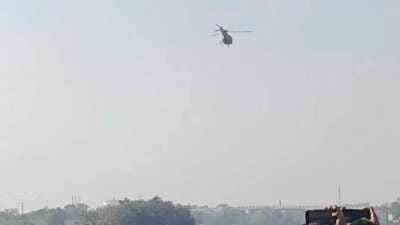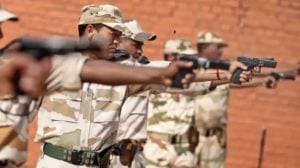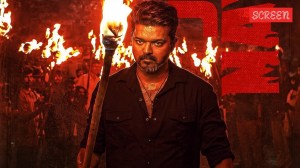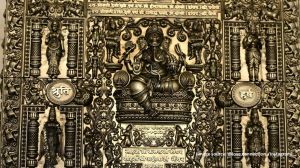Wide angle
Pakistan Television was serving its holy staple. A priest with some flair for clear diction was explaining verses from the Koran with occa...

Pakistan Television was serving its holy staple. A priest with some flair for clear diction was explaining verses from the Koran with occasional references to events in the life of Prophet Mohammed. PTV, December 16, 7:30 p.m Two instances stand out from an otherwise lengthy sermon.
First, the Prophet had often held spellbound groups of Christians he addressed. From this the priest concluded that the Christian West, in its present conditions of moral decay, would be most receptive to an army of Islamic missionaries.Second, said the priest, one of the ways the devil operates on us is to induce in us a desire to follow what the majority of people around us are doing or saying. Submission to the will of the majority, the priest seemed to be implying, is the devil8217;s way to have his agenda implemented. Implications for liberal democracy, from what the holy man said, are obvious.The sermon, I thought, confirms what we know; the sort of society that is sought to be shaped in our neighbourhood by the influentialpriestly class 8211; a society so severely Islamic as to stand out in sharp contrast to a secular, multi-ethnic, multi-religious India. The purpose of this double or triple distilled Islam is to sustain in perpetuity a stance of hostility to India.
Nothing disturbs the authors of the Pakistani state as distinct from the people than the success of Indian democracy and secularism which protects, among a billion others, the world8217;s second largest Muslim population, greater than the population of Pakistan. One way to help Pakis-tan implement its age-nda is to strengthen th-ose who seek to be Pak- istan8217;s mirror image by attempting to place In-dia under a blanket of one uniform colour.
This is the evolution of an Islamic society at one end of the spectr-um. Last week I was in another Muslim society which seeks its salvation by embarking on quite the opposite route 8211; that of a secular state even though its population of 65 million is Muslim.
Not many people in this part of world have any appreciation of thehistoric step that Europe took last week at the EU summit in Helsinki by admitting Turkey as an official candidate for future political and economic union with Europe. The journey towards Europe begun by the founder of modern Turkey, Mustafa Kemal Pasha Ataturk 75 years ago could well be nearing its end. Ataturk was convinced that Tur-key8217;s destiny lay with Europe.
While the cold war was on, Turkey8217;s pl-ace in the Western framework was assured. It was one of the most powerful members of NATO. The collapse of the Soviet Un-ion posed a question mark on Turkey8217;s pl-ace in the Western framework. While NATO was reassessing its post-cold war role, the question on whether or not Tu-rkey was quot;Europeanquot; stood out in bold relief. For a while Euro-pean attitude towards Turkey gave credence to Samuel Huntington8217;s clash of civilisat-ions thesis.
Even though Tur-key played its faithful role as a NATO ally allowing the use of its bases during the Gulf War, Europe continued to regard Turkey as an entity outside itsci-vilisational zone.
Western inaction during the Bosnian war, the West8217;s high tolerance level for the barbarities Bosnian Muslims were subjected to, largely by the Serbs, accentuated the Muslim-Christian chasm. Bosnians were seen largely as creatures left behind by the Ottoman Empire. Turks watched Bosnia with anguish and helplessness.
In the same sequence, Europe administered Turkey a double insult. At the Luxembourg Summit two years ago EU named Cyprus along with Poland, Hungary, Czech Republic, Slovenia and Estonia, as a country with whom accession negotiations would begin straightaway. Lithuania, Lat-via, Slovakia, Bulgaria and Romania were named as quot;candidatesquot;. But Turkey, which has been knocking at the European door since the 80s, was simply told that its enthusiasm for European entry had been noted.
I have had European leaders say on TV interviews that European civilisation was primarily Christian and that Turkey would not quot;fitquot; in.It was a cumulative effect of what the average Turk felt wasa series of slights that contributed towards the rise of Islamic extremism in Turkey.
To some extent the American tilt towards Kosovo, a Yugoslav province civilisationally affiliated to the Ottomans, was assigned that the West was beginning to take Turkish sensitivity into account.
Little wonder, President Clinton had such a hostile reception in Athens after he helped sign the Baku, Georgia, Ceyhan Turkey pipeline deal during the OSCE Summit in Istanbul.
But the new Greek leadership is now showing maturity towards Turkey. Greek Foreign Minister George Papandreou believes Turkey8217;s European future has to be assured before it begins to embark on painful reforms.
In other words, there is a thaw in Greek-Turkish relations. Against this backgro-und, the talks in New York under the auspices of the UN Secretary General bet- ween the leader of Turkish Cypriots, Rauf Denktash, and Cypriot President Glafcos Clerides are also historic in nature.
All of this will have far reaching effects on stabilising theBalkans and generally thwarting the Huntington logic even as Pakistan gallops away in the opposite direction, embarked not on a project of piety but of political Islam which can only lead it towards extremism and hostility to a society of another hue.
- 01
- 02
- 03
- 04
- 05































